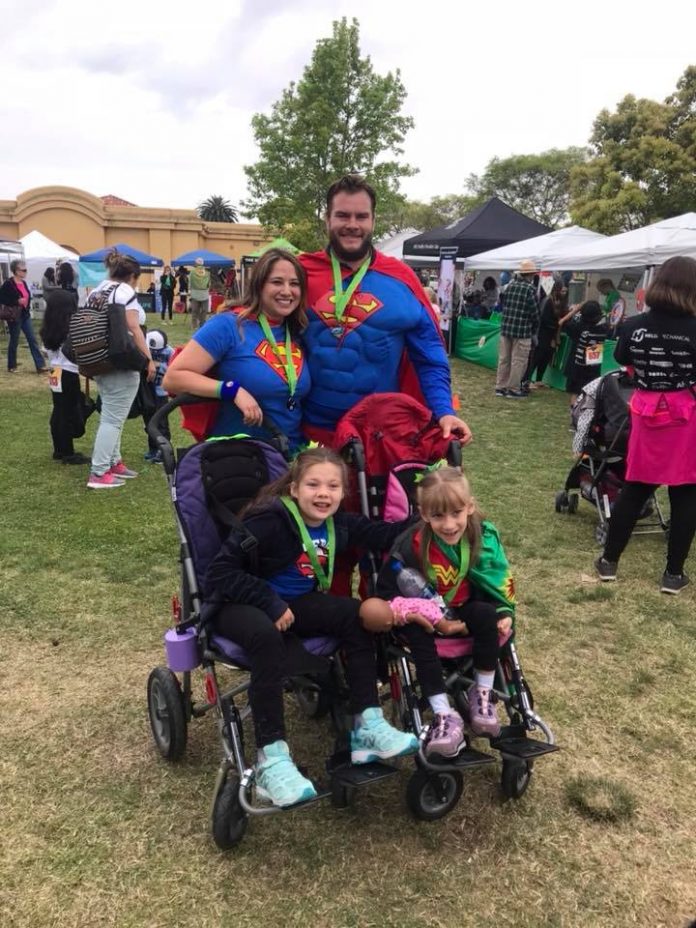Christina Whaley wanted to channel her negativity into a force for good.
Whaley has two daughters, Kailyn, 9, and Charis, 7, who both have mitochondrial disease.
“I needed a way to channel my sadness and my disappointment and anger and all of those negative things. I decided to do something positive to find a cure in San Diego,” Whaley said.
She eventually established the UCSD Mitochondrial Research Fund in 2012, which has raised more than $425,000.
Christina Whaley wanted to channel her negativity into a force for good.
Whaley has two daughters, Kailyn, 9, and Charis, 7, who both have mitochondrial disease.
“I needed a way to channel my sadness and my disappointment and anger and all of those negative things. I decided to do something positive to find a cure in San Diego,” Whaley said.
She eventually established the UCSD Mitochondrial Research Fund in 2012, which has raised more than $425,000.
Mitochondrial disease is caused by the failure of mitochondria, which are responsible for creating more than 90 percent of the energy needed to live. According to the United Mitochondrial Disease Foundation, mitochondrial disease is hard to diagnose because it affects individuals differently. Symptoms include seizures, strokes, severe developmental delays, inability to walk, talk, see, and digest food along with other complications.
Every 30 minutes a child is born who will develop a mitochondrial disease, and only half will live past their 10th birthday, according to the United Mitochondrial Disease Foundation.
“I think the most common misconception is that people think it is a rare disease. Just because somebody who has the disease looks completely normal on the outside doesn’t mean their organs aren’t failing them on the inside,” Whaley said.
Mitochondrial dysfunction plays a role in other diseases as well, including but not limited to Alzheimer’s, dementia, Parkinson’s disease, Huntington disease, diabetes, cardiovascular disease and stroke, according to the foundation.
“I wish everybody knew that all of the diseases and disorders, including Alzheimer’s and cancer are all related to mitochondrial disease. Really our research money needs to be going to mitochondrial research.”
The UCSD Mitochondrial Research Fund goes toward research conducted by Dr. Naviaux, who directs a core laboratory for metabolomics at UCSD. He is the co-founder and a former president of the Mitochondrial Medicine Society and a founding associate editor of the journal Mitochondrion.
His lab has developed advanced technologies including biocavity laser spectroscopy and mtDNA mutation detection by mass spectrometry.
On the UC San Diego Mito Research Fund website, people can donate once or sign up to make monthly donation payments.
Whaley and her dedicated volunteers host a 5k run every year in May at Liberty Station in Point Loma as their main fundraising event. Whaley said the 5k takes months of planning, which she has to balance between being a full-time Spanish teacher and being a mom.
The next UCSD Mito Research Fund event will be the third annual private comedy show and dinner in Alpine on Nov. 17 at the Alpine Community Center. Tickets are $35 each before Nov. 1 and $40 each after.
Tickets are available for purchase through Whaley, eventbrite and at The Alpine Sun.
National Mitochondrial Awareness week is from Sept. 16-22.













